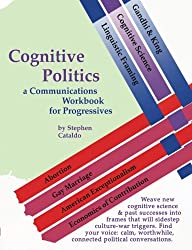[ This variant posted to Daily Kos. Similar version here. ]
According to cognitive scientist George Lakoff, liberal and conservative politics is a struggle carried out in metaphors, the nurturing parent and the strict father. So how have conservative frames and metaphors evolved to allow Trump so much success?
What kind of leader was Eisenhower? Churchill? When JFK said "ask what you can do for your country" he was not being nurturing, but meeting a widespread desire to have disciplined leadership challenging us to be our best. These conservative leaders (and moments) evoke a disciplined strict father metaphor.
Trump isn't yet winning among liberals, so he hasn't engaged people who think with the nurturing parent metaphor yet. Instead something has altered in America's story of the strict father metaphor. Leaders in Eisenhower's mold are no longer rising to the top among people who think of the world with a strict father framework.
Lakoff argues that our brains are wired to think with metaphors, and the more we use a metaphor the more those pathways are reinforced. If you've been listening to the stories from the strict father side of American politics, those stories follow the pathways of the Southern Strategy, dog whistles and constant attacks on the Clintons and Obama. Serving your country has not been a key part of that story for a generation. The Republican party has used anger instead of responsibility as the pattern to strict father leadership for so long that this neural pathway has been well reinforced, and a plurality of their party now sees strict fathers not as disciplined leaders but angry mob leaders.
Donald Trump feeds on fear, he magnifies it. He is not a disciplinarian, but a strongman: a drill sergeant saying "drop and give me 20" has a different motive than "you're fired!" Trump's focus is punishment and strength, rather than challenging people to face their fears. His voters don't see themselves being asked of anything.
Nurturing parent and strict father describe our old politics. They don't describe this primary, and might not describe the election ahead. If he wins the primary, I expect Trump will try to get the votes of people who have in the past preferred the nurturing parent or liberal model out of self-interest rather than compassion: if you're angry, he'll amplify your anger for you. He'll give voice to your anger, without asking anything of you.
"Keep calm and carry on" and "the only thing we have to fear is fear itself" from Churchill (as popularized) and FDR -- a large span across the spectrum of left and right -- share a similar root story of widespread bravery. Trump opposed both elements of the story: he encourages fear, and what bravery is needed he plans to provide himself.
How do we evoke metaphors that pull people away from their anger?
I see three strategies for dealing with Trump:
- Conservatives who believe in trustworthiness and pragmatism need to call for responsibility over anger. They need to redefine conservatism, taking responsibility for the Southern Strategy, treating political opponents with respect, and challenge fellow conservatives to let go of blame and paranoia. This has to be done steadily, election after election, rebuilding a strict father conservatism about loyalty and sacrifice to your nation and support for small business pragmatism and responsibility. Honor the office of the President, and stand up to bullies. Blaming others for your own failings can infect both liberal and conservative movements, and today it has infected the Republican Party. Kill the infection, or there will be no real conservative movement in the US.
- For liberal politicians, Trump needs to be carefully mocked. But this is very tricky: if you mock people like him, his followers already feel under attack, and so you'll just tighten his hold. He needs to be shown as weak, without making his followers feel like they are weak. Strong-man politics is quite vulnerable to this; pointing out that he is a vile is less helpful when his base is angry. This follows the Dare to Discipline approach to a temper tantrum: you can't let the power play win.
- For liberal people with family members leaning towards Trump, there are few arguments that can work. Fear is at the heart of the anger that turns to votes for Trump. Listening is probably one of the best things you can do, trying to get at the root of why people feel angry, and making sure they feel heard. I doubt many people who have a good therapist are voting for Trump. It's a lot more fun to win arguments, but cross-partisan decency and connection get at the root of the problem.

If the strict father metaphor is dividing, what are the new metaphors? The old model was a disciplinarian or drill sergeant; what metaphor describes Trump? How do we pull our society away from it?